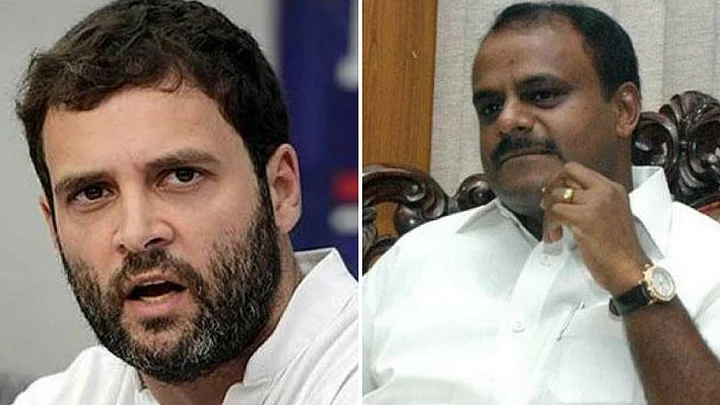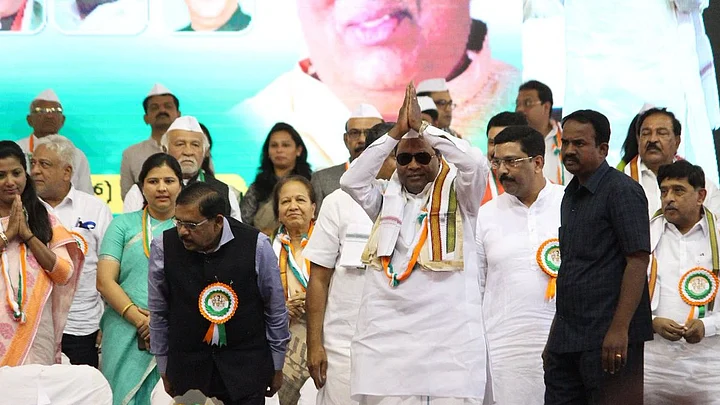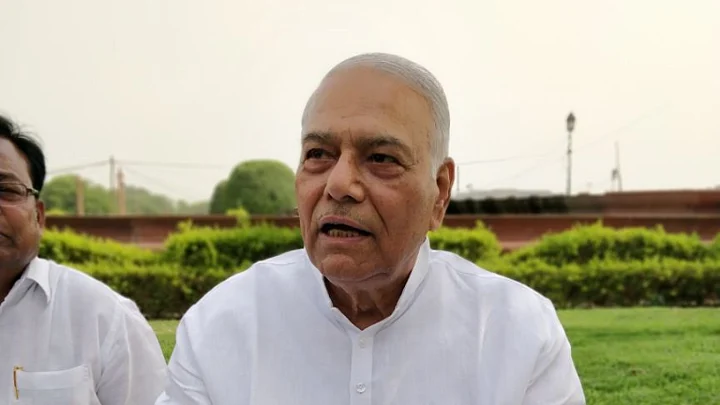Politicians cooped up in resorts, hopping from one party to another – this kind of politics is a frequent phenomenon in the state of Karnataka.
Numerous instances in the past and the ongoing political drama in the state are a stark reminder of how frequently MLAs – cutting across party lines – jump ship with blatant disregard for democracy, ideology, or party unity.
And while states like Telangana and Andhra have seen MLAs from the losing party leaving to join the winning party for the sake of better political fortunes, what is unique to Karnataka is the number of times MLAs from the winning party or coalition have willingly been poached, in an attempt to topple their own government.
On 13 January 2019, Karnataka Water Resource Minister DK Shivakumar announced that three Congress MLAs were at a resort in Mumbai, and were being poached by the BJP.
This soon spiralled into massive speculation that the BJP was trying to topple the JD(S)-Congress coalition government by poaching over 15 Congress MLAs and moving a no-confidence motion in the Assembly.
So what exactly is in the air of Karnataka that makes party leaders unable to keep their flock together?
One reason, political analysts say, is that MLAs and politicians in the state are not really loyal to any ideology. Also, the fact that in all the times that MLAs have been happy to be traded like horses, they’ve faced zero consequences.
Congress in a Drift
Ahead of the Karnataka state Assembly elections in May of 2018, the Congress party had nominated Siddaramaiah as the one to lead the party to victory. When the party did not manage to win a majority in the state, they allied with the JD(S), and G Parameshwara was made the Deputy CM.
DK Shivakumar, the current Water Resources Minister in the state, emerged as the party’s poster boy, who managed to ensure none of their MLAs were poached.
And then, Gandhinagar MLA and Congress loyalist Dinesh Gundu Rao was made the Karnataka Pradesh Congress Committee President.
With multiple power centres in the party’s state unit, the Congress is witnessing a game of one-upmanship in the state.
The high command has failed to appoint a single leader in-charge of the state’s affairs, and internal factions and infighting has surpassed the need for party loyalty. The party is also heavily reliant on its leaders rather than the party’s image to win votes, and is unable to control their actions, political analysts say.
“If we see the Congress in Karnataka, there were no political coups between 2013 and 2018 because the party was being led by Siddaramaiah. In the past too, whenever the Congress has appointed one person to lead the party-men, infighting took a backseat, although there were differences. This time around, that has not happened. Siddaramaiah, DK Shivakumar and Parameshwara and their respective factions have been fighting for power, and the national leadership is unable to do anything,” says political analyst Mahadeva Prakash.
“Look at Rajasthan and Madhya Pradesh. The national leadership appointed Ashok Gehlot and Kamal Nath to lead the party and this has not happened there,” he adds.
The Vacuum in BJP Leadership
The first time the BJP won a remarkable number of seats was in the 1994 elections. The party had won 40 seats and the success was duly credited to BS Yeddyurappa. Prior to 1994, the BJP had a negligible presence in the state.
Yeddyurappa’s efforts to build up a base for the party turned him into a mass leader, which the BJP had lacked prior to 1994.
Over the years, the BJP became heavily reliant on Yeddyurappa to win subsequent elections. With no other alternative leader to take over the reigns in the party, the high command has no option but to give in to Yeddyurappa’s whims and fancies. This resulted in several party veterans becoming disgruntled.
“Yeddyurappa never allowed other leaders to grow. The only other person who was able to counter him was Ananth Kumar. With his demise, there is a vacuum in the BJP’s leadership. Without Yeddyurappa, the party will not have anyone who can lead it to victory. Several leaders are unhappy with Yeddyurappa and have taken to infighting. This kind of behaviour has never happened in other states with BJP presence, but the lack of proper state-level leadership has made Yeddyurappa brazen,” Mahadeva Prakash added.
Yeddyurappa’s petulance and his quest to become the CM by hook or by crook, and his alleged favouritism within the party, has also resulted in elaborate political dramas which unfolded in the state.
In 2004, Gali Janardhana Reddy, the then Minister for Tourism had shipped off several BJP MLAs to a resort due to disagreement in allocation of cabinet berths.
Reddy had accused Yeddyurappa of favouritism. The national leadership had stepped in and quelled the rebellion. This did not stop the leaders in the state from constantly bickering.
In 2011, BS Yeddyurappa had quit from his post as the Chief Minister of Karnataka due to allegations of his involvement in illegal land and mining deals.
Yeddyurappa had ferried 60 BJP MLAs to a glitzy hotel in the outskirts of Bengaluru to install Sadananda Gowda as the CM.
Less than six months after this, Yeddyurappa once again shepherded BJP MLAs to a resort in order to seize power as CM from Sadananda Gowda.
In 2012, he formed the Karnataka Janata Paksha and contested polls against the BJP and Congress in the subsequent year.
Lack of a Strong State-Based Party
According to political analyst Sandeep Shastri, state-based parties in South India do witness shifting of loyalties.
However, in Karnataka, the phenomenon is more pronounced as the political parties are leadership-driven and not driven by the party’s image or ideology.
“Karnataka sees the presence of two major national parties which are stronger than the state-based JD(S). If you take Andhra Pradesh, Tamil Nadu and Telangana as an example, the situation is different because the state-based parties are stronger than the national parties. In Karnataka, the decisions are not made by state leaders but by the national leaders. The politics is surrounded by the leaders in the party and not the party’s image. This is one of the major reasons why there are so many defections in Karnataka politics,” Sandeep Shastri says.
“There is infighting in all political parties and BJP’s national leadership has always been able to maintain a tight hold on the leaders. In Karnataka, however, the situation is different. Parties are heavily reliant on its leaders. While the Congress national leadership is playing safe by not appointing one person to lead its candidates in Karnataka, there is a dearth of strong candidates in BJP. This has led to leaders having a notion in their minds that they are invincible and can bargain for plum posts by threatening defection,” Mahadeva Prakash added.
(Published in an arrangement with The News Minute)
(At The Quint, we question everything. Play an active role in shaping our journalism by becoming a member today.)






